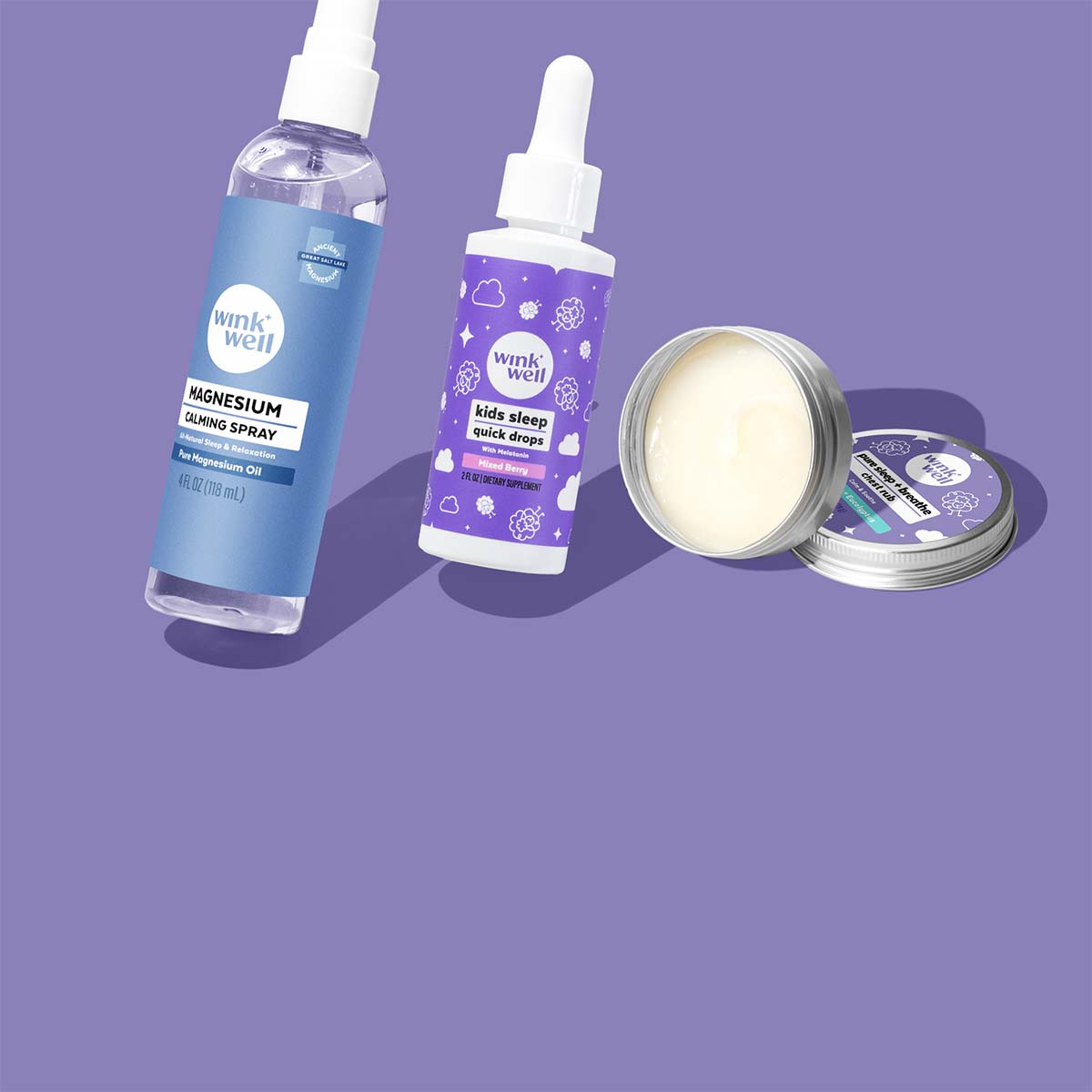Want to know what’s scarier than Halloween? Preparing your little kids for Daylight Saving Time! Even though we technically “fall back” and “gain” an hour of sleep, our little ones have spidey senses when it comes to sleep and they tend to stick to what they know… keeping us sleepy :).
So, since Daylight Saving Time has ended we thought we’d talk about all the bad sleep habits we have. And, more importantly, the solutions to help you get back on track.
Don’t feel bad if you are guilty of a few of these habits, they’re actually pretty common!
You Don’t Have a Consistent Schedule
Most people love the weekends because they get to sleep in! And who doesn’t love that? The problem is, when you sleep in two hours later than normal, your body wants to keep you awake two hours later, and thus begins a new cycle.
Then Sunday rolls around (along with the Sunday scaries) and we wonder why we can’t fall asleep to get a good night’s rest.
A good rule of thumb: have a fixed wake time. Like forever and always. That includes weekends, vacations, etc.
Did you stay up late last night? Still wake up at the same time, and squeeze in a power nap later. Not too long, because then it can mess up your bedtime again.
You know who is really good at waking up at the same time every day? Kids! Their internal clocks are incredible, that’s why it’s important that you set a good bedtime for them so they can get enough sleep.
You Aren’t Going to Bed Early Enough
Speaking of going to bed on time, that is our next habit. We oftentimes have more control over when we go to bed vs. when we have to wake up. Waking up depends on work, school, kid’s activities, etc.
Setting your bedtime largely depends on when you have to wake up in the morning and how much sleep you require.
Curious about how much sleep you need? Here are some suggestions based on your age:
Newborns (0 to 3 months): Should average 14-17 hours of sleep, including naps
Infants (4 to 11 months): Should average 12-15 hours of sleep, including naps
Toddlers (12 to 35 months): Should average 11-14 hours, including naps
Preschoolers (3 to 5 years): Should average 10-13 hours
School-Age Children (6 to 13 years): Should average 9-11 hours
Teenagers (14 to 17 years): Should average 8-10 hours
Adults (ages 18+): Should average 7-9 hours of sleep
Now that you know roughly how much sleep you should be getting, you can set your bedtime and stick with it.
You Go to Bed Too Early
Now you might be thinking, is this really a bad habit? Yes, it can be! Let’s say you decide to go for 9 hours of sleep one night. You hop into bed and toss and turn for an hour, then get riled up and end up staying up for a few more hours.
If you don’t fall asleep within 20 minutes of getting into bed, get out of bed and go do a quiet/chill activity. Maybe take a bath, read a book (with low light), but avoid electronics.
Going to bed too early and tossing and turning every night might be a sign that you aren’t ready to go to bed yet. If you are waking up at the same time every day, this might mean that you just require less sleep than you realize. Maybe you are perfectly fine with 7 hours of sleep.
You Are Getting Too Hyped Before Bed
Preparing yourself to go to bed involves your body as much as it involves your mind. If you’re out running a marathon and then you run home and jump into bed, your body will NOT be ready for bed!
Just like watching tv, playing on your phone or working on your computer tell your mind (brain) that it’s daytime (blue light), aka not time for sleep.
Have you heard about melatonin? It’s a naturally occurring hormone that is produced in your brain and GI tract. And it is triggered by darkness. The release of melatonin helps let your body know that it’s time to sleep.
So, when you walk around your house at night with all the bright lights on everywhere, while watching tv and playing on your phone, you are confusing your brain.
Save the hype time for the morning and go for a chill bedtime routine.
You Use Your Bed for Too Many Things
Here’s another weird sleep habit or rule: only use your bed for sleep and sex!
Don’t work in bed, don’t text in bed, don’t toss and turn, don’t watch tv, you get what we’re saying, right?
It all goes back to your brain. You want your brain to associate your bed with sleep (and sex), nothing else.
You don’t want to hop into bed and then get into work mode all of sudden.
If you want more details on what you should NOT do in bed, check out this post, here.
You are Eating a Big Meal Before Bed
Eating a big meal before bed can affect your sleep and your waistline.
When you eat right before bed, your body’s metabolism slows in preparation for its nighttime functions. But when you consume foods (especially those high in carbs) it can make it harder to digest and result in weight gain.
On top of that, when you eat and then immediately lay down, you might experience indigestion, heartburn, or acid reflux.
One last note, food triggers the brain to wake up (kind of the same idea of changing a grumpy person to a happy one with a little snack).
So, how long should you wait after eating to hit the hay? Shoot for 2-3 hours between your last meal and bedtime.
You Aren’t Exercising and Eating a Healthy Diet
Since we were just on the topic of food, it felt right to talk about eating a healthy diet and exercising.
Foods to avoid before bed: chocolate (say it isn’t so…but chocolate is high in caffeine), spicy foods (messes with our body temperature throwing off sleep), and ice cream (hello sugar spike).
Foods that help with sleep: almonds (great source of melatonin), turkey (contains tryptophan which increases the production of melatonin), white rice (studies suggest that its high glycemic index (GI) may promote better sleep).
Exercise and sleep have something called a bidirectional relationship. This means picking the perfect exercise routine can potentially help you sleep better and getting the right amount of sleep can help you increase your physical activity.
One big thing that moderate-to-vigorous exercise does is reduce sleep onset (the time it takes to fall asleep). It can also help with daytime sleepiness and help you maintain a good weight.
You are Drinking Too Much or Too Late
We kept this one vague for a reason. All different types of “drinking” can affect your sleep in various ways.
- Caffeine. For most people, caffeine should be avoided for 4-6 hours before bedtime. Why? Because that’s how long it takes the body to metabolize half of your caffeine consumption. If you are highly sensitive to caffeine then consider cutting out caffeine by noon.
- Alcohol. This one is a little tricky, because it can actually help you fall asleep faster (sleep onset latency) by helping the production of adenosine but then affecting your sleep after, by shorter sleep durations, and more sleep disruptions.
- Water. Drinking water is massively important for your body and sleep. But it’s important to drink enough water during the day so you can slow down closer to bedtime (at least 2 hours before bed). Otherwise, you’ll be waking up throughout the night to use the restroom, which means sleep disruption.
The Best Sleep Habits (and Tools) for Some Quality ZzZzZ’s
Now that you know all the bad habits to break, you can work on your sleep hygiene. And we can help.
You might not know this, but Wink Well was originally called The Natural Sleep Co., because we knew that sleep was a huge problem.
Over the years, we’ve come out with various products to solve various sleep issues:
- Helping Kids Sleep: Kids Sleep Melts and Kids Sleep Drops
- Creating a Relaxing Bedtime Routine: Pure Sleep & Breathe Chest Rub
- Helping Adults Sleep: Adult Sleep Quick Melts
- Helping Younger Kids and Adults Wind Down: Zen Drops
Need extra help setting a good bedtime routine? Take a bath and use our Foaming Oil Bath Wash (or Rose & Shine) to clean your body and/or help make a bubble bath.
Better sleep is just one good habit away!
Shop sleep, here.







Leave a comment
All comments are moderated before being published.
This site is protected by hCaptcha and the hCaptcha Privacy Policy and Terms of Service apply.